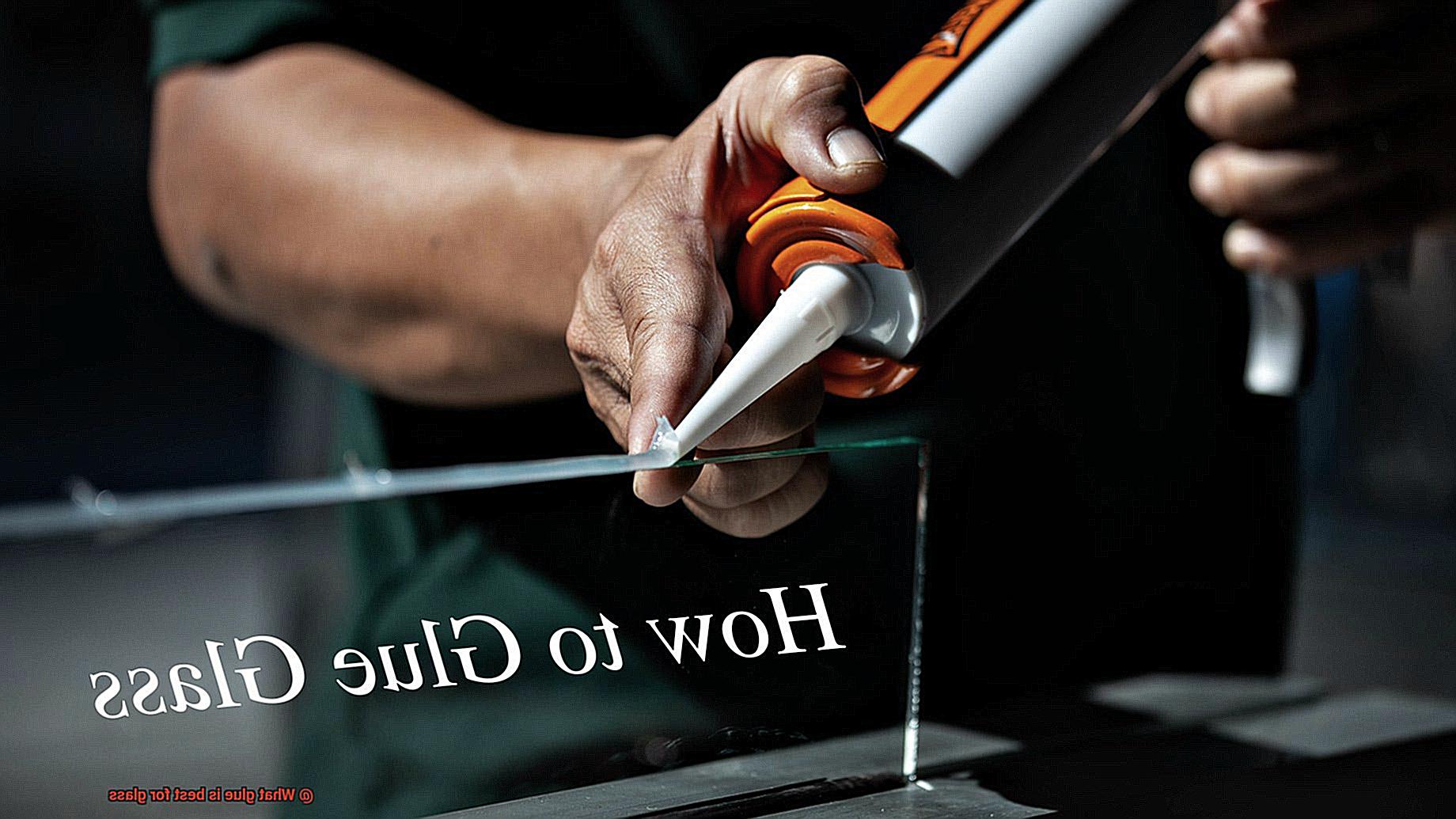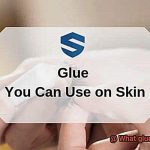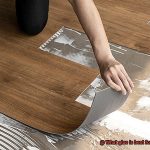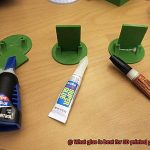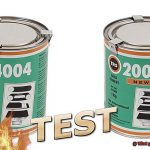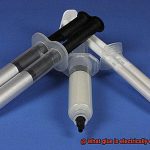Glass, that ethereal material that captures light and enchants our senses, holds a special place in our hearts. Whether it’s restoring cherished heirlooms or unleashing your creative genius on DIY glass projects, finding the perfect glue for glass can be a daunting task. But fear not, my fellow enthusiasts, for this blog post is here to demystify the world of adhesives and introduce you to the crème de la crème.
Crafting and repairing glass objects requires an adhesive that can stand the test of time, adapt to different surfaces, and create bonds so strong they could withstand a hurricane. In this all-encompassing guide, we will dive headfirst into the realm of glues, uncovering the secrets behind which ones work best for various glass surfaces – from intricate stained glass windows to delicate glassware and even artistic mosaic projects.
Prepare yourself to embark on a journey through adhesive wonderland as we unveil tried-and-true classics alongside cutting-edge innovations. Discover adhesive solutions tailored to your unique needs, style preferences, and budgetary constraints.

So, if you’re ready to unleash your creativity with flawlessly bonded glass masterpieces, join us on this thrilling adventure through the captivating world of glues that will elevate your craft game to unprecedented heights.
Adhesive Types for Bonding Glass
Contents
- 1 Adhesive Types for Bonding Glass
- 2 Benefits of Using Silicone Glue for Bonding Glass
- 3 Benefits of Using Epoxy Resin for Bonding Glass
- 4 Benefits of Using UV-Curing Glues for Bonding Glass
- 5 Benefits of Using Multi-Purpose Adhesives for Bonding Glass
- 6 Surface Preparation Before Applying an Adhesive to Glass
- 7 The Best Glue for Different Types of Projects Involving Glass
- 8 Conclusion
Today, we’re diving into the enchanting realm of glass bonding and exploring the different adhesive types at our disposal. Prepare to be amazed by the magical properties of these glues.
Cyanoacrylate Adhesive: The Super Glue Marvel
Cyanoacrylate adhesive, commonly known as super glue, is a true sensation when it comes to bonding glass. Its lightning-fast bonding ability makes it perfect for small repairs or delicate glass objects. However, be cautious when considering its use for long-term bonding, as it may become brittle over time.
Polyurethane Adhesive: The Indestructible Warrior
Polyurethane adhesive is the tough guy, ready to conquer any challenge. Its flexibility and outstanding bond strength make it a formidable ally. Regardless of temperature or environment, this adhesive triumphs over adversity. The automotive and construction industries often rely on polyurethane adhesive for bonding glass components that can withstand demanding conditions.
Silicone Glue
If you’re searching for a glue that can work wonders on your glass projects, look no further than silicone glue. In this article, we’ll unlock the magic of silicone glue and explore its extraordinary properties, advantages, and versatile uses when it comes to bonding glass.
Advantages of Silicone Glue for Bonding Glass:
Temperature Resistance:
Silicone glue possesses an incredible ability to withstand extreme temperatures without losing its adhesive properties. Whether you’re repairing a cracked window or creating a stunning glass art piece exposed to fluctuating weather conditions, silicone glue is your reliable ally.
Water and Moisture Resistance:
When it comes to areas prone to water exposure, such as bathroom fixtures or aquariums, silicone glue reigns supreme. Its waterproof nature ensures that your bond remains strong and durable even in the face of splashes and humidity, making it the perfect choice for long-lasting glass bonds.
Transparency and Residue-Free Application:
Say goodbye to unsightly marks on your beautiful glass creations. Silicone glue’s transparent nature acts like a magic spell, allowing your glass to shine through without any visible traces of adhesive. Its clear, residue-free drying process ensures that your glass projects look flawless.
Flexibility:
Imagine a glue that adapts to the movements of your glass masterpiece without compromising its bond. Well, silicone glue is just that. Its flexibility makes it perfect for bonding materials that expand or contract due to temperature changes, ensuring your glass creations remain intact and durable.
Uses of Silicone Glue for Bonding Glass:
- Repairing cracked windows or glassware
- Creating stunning stained glass projects
- Assembling glass jewelry or ornaments
- Bonding mirrors or decorative glass panels
- Securing tiles or mosaics onto glass surfaces
Epoxy Resin
When it comes to bonding glass, epoxy resin is a popular choice due to its ability to create strong and durable bonds. In this article, we will explore the advantages and disadvantages of using epoxy resin for bonding glass, ensuring you have the knowledge to make informed decisions for your next glass project.
Advantages of Epoxy Resin for Bonding Glass:
- Versatility: Epoxy resin is versatile, capable of bonding various types of glass surfaces, including smooth, textured, or stained glass. No matter the complexity of your glass project, epoxy resin has got you covered.
- Durability: Epoxy resin forms long-lasting bonds that can withstand heat, moisture, and chemicals. Whether you are repairing cracked windows or creating intricate stained glass art, epoxy resin provides the strength and durability needed to hold everything together.
- Aesthetics: Epoxy resin dries clear, making it perfect for transparent or colored glass projects where aesthetics are crucial. It also resists yellowing or discoloration over time, ensuring your creation maintains its beauty and clarity.
- Specialized Options: If time is a concern, UV-curing epoxy resins offer faster curing times. These specialized options are ideal for specific glass applications that require quick results without compromising strength and clarity.
Disadvantages of Epoxy Resin for Bonding Glass:
- Short Working Time: One drawback of epoxy resin is its short working time before it begins to harden. Precision and swift application are essential to achieve proper bonding.
- Odor during Curing: Epoxy resin may emit a strong odor during the curing process. Working in a well-ventilated area is imperative to minimize discomfort.

UV-Curing Glues
Prepare to be amazed by the incredible benefits these adhesives bring to the table.
Let’s start with speed. Say goodbye to long drying times because UV-curing glues spring into action and cure almost instantly when exposed to UV light. This means faster assembly and manufacturing processes, saving both time and money.
Now, let’s talk aesthetics. Imagine creating a stunning glass masterpiece, only to have unsightly glue marks ruin its beauty. Fear not. UV-curing glues provide a seamless finish. Once cured, they become clear and transparent, virtually invisible on glass surfaces. Your creations will shine like stars in the night sky.
But wait, there’s more. UV-curing glues are tough cookies when it comes to temperature and moisture. They boast high thermal stability, meaning they won’t crack under pressure in environments with fluctuating temperatures. Additionally, these glues resist moisture like superheroes, ensuring your bonds stay strong over time.

Let’s talk application. UV-curing glues come in various forms – liquids, gels, and pastes – offering versatility for different projects. Whether you prefer brushes, syringes, or automated dispensing systems, these glues have got you covered.
However, it’s important to note that using UV-curing glues requires a UV light source for proper curing. But don’t worry – specialized equipment like UV lamps or LED lights emitting the right wavelength will do the trick.
UV-curing glues revolutionize glass bonding across industries. From electronics to automotive and even beautiful glass furniture, these glues are your reliable superheroes. They cure in a flash, provide impeccable transparency, withstand tough conditions, and offer versatile application methods.
Multi-Purpose Adhesives
Multi-purpose adhesives are the superheroes of the glue world, offering a versatile solution for all your bonding needs. When it comes to glass, UV-curing glues are the ultimate champions. These incredible glues cure almost instantly when exposed to UV light, saving you time and frustration. No more waiting around for glue to dry or holding pieces together forever – with UV-curing glues, your glass masterpieces will be ready in a flash.
- But it’s not just about speed – UV-curing glues also deliver a flawless finish. Once cured, these glues become clear and transparent, ensuring that your glass creations shine like stars in the night sky. Say goodbye to unsightly glue marks that can ruin the aesthetic of your projects. With UV-curing glues, your glass pieces will look flawless and professional.
- And it’s not just about looks either – UV-curing glues pack a punch in terms of performance. They have high thermal stability and resistance to moisture, making them tough cookies that won’t crack under pressure or weaken over time. Whether you’re working on electronics, automotive applications, or beautiful glass furniture, UV-curing glues have got you covered.
- The best part? UV-curing glues come in various forms – liquids, gels, and pastes. This versatility allows you to choose the perfect consistency for your project and apply it with ease. Whether you prefer brushes, syringes, or automated dispensing systems, there’s a UV-curing glue that will suit your needs.
So why settle for traditional adhesives when you can harness the power of UV-curing glues? They’ll save you time, money, and frustration while delivering outstanding results. Just make sure to have a UV light source on hand for proper curing – specialized equipment like UV lamps or LED lights will do the trick.
Benefits of Using Silicone Glue for Bonding Glass
Silicone glue is the ultimate solution for bonding glass. Its exceptional properties make it the perfect choice for all your glass bonding needs. Let’s explore the key benefits of using silicone glue for bonding glass.
First and foremost, silicone glue offers unbeatable adhesion. It forms a strong and durable bond with glass surfaces, ensuring that your bonded pieces stay securely in place. Whether you’re working on delicate glass crafts or intricate repairs, silicone glue will provide a long-lasting and reliable bond that stands the test of time.

Flexibility is another standout feature of silicone glue. Unlike other glues that can become brittle or crack under stress, silicone glue maintains its flexibility. This makes it ideal for bonding glass surfaces that may experience slight movements or vibrations. Rest assured that your bond will remain intact even under changing conditions.
Silicone glue is also highly resistant to water and moisture. Its inherent waterproof properties make it suitable for indoor and outdoor applications where the bonded glass may be exposed to humidity or wet conditions. From bathrooms to kitchens to aquariums, silicone glue has got you covered.

When it comes to temperature resistance, silicone glue shines. It can withstand extreme heat without losing its adhesive properties or deteriorating. If you’re working on projects that involve bonding glass objects subjected to heat, such as oven doors or glass cookware handles, silicone glue is the way to go.
Transparency is another advantage of using silicone glue for glass bonding. It dries clear and leaves no visible residue on the bonded surface. This ensures a clean and aesthetically pleasing bond, especially when working with transparent or colored glass.
Lastly, silicone glue is easy to use and apply. Available in various forms like tubes or squeeze bottles, it allows for precise application without the need for additional tools or equipment. Silicone glue also has a reasonable curing time, enabling you to work efficiently without compromising the quality of the bond.
Benefits of Using Epoxy Resin for Bonding Glass

Today, we delve into the world of epoxy resin and its remarkable benefits when it comes to bonding glass. Whether you’re a professional artist or a DIY enthusiast, epoxy resin is here to save the day with its super-strong adhesive properties and versatile nature. So, let’s dive in and explore the advantages of using epoxy resin for glass bonding.
Crystal Clear Finish:
When bonding glass, achieving a seamless and invisible bond is crucial. Epoxy resin rises to the challenge by drying to a crystal-clear finish, ensuring that your bond remains virtually undetectable. Say goodbye to visible residue or cloudy appearances.
Resistance to Moisture, Chemicals, and Temperature Fluctuations:
Epoxy resin acts as a superhero shield for your glass bonds. It offers excellent resistance to moisture, chemicals, and temperature fluctuations. This means that whether your project is indoors or outdoors, exposed to water or harsh environments, epoxy resin will hold strong without compromising the bond.
Versatility at Its Finest:
Epoxy resin doesn’t discriminate when it comes to bonding glass. It can handle various types of glass such as tempered glass and stained glass. But wait, there’s more. It can also bond glass to other materials like metal or wood. Talk about versatility.
Unbreakable Strength:
Need a bond that can withstand serious force? Look no further than epoxy resin. With its high tensile strength, it can handle considerable pressure without breaking or weakening the bond. Whether you’re bonding large or heavy glass objects, epoxy resin has got your back.
Lasting Durability:
Once cured, epoxy resin forms a strong and permanent bond that stands the test of time. Say goodbye to wear and tear. Objects bonded with epoxy resin will maintain their strength and integrity for years to come.
User-Friendly Application:
Don’t worry if you’re not a glue expert – epoxy resin is relatively easy to use. It typically comes in two parts, the resin and the hardener, which are mixed together before application. This allows for proper positioning and adjustment of the glass pieces before the epoxy starts to cure. Once cured, you can even polish or shape the bond if desired.
Benefits of Using UV-Curing Glues for Bonding Glass
When it comes to bonding glass, there is one superhero adhesive that stands above the rest – UV-curing glues. These remarkable adhesives possess a range of benefits that make them the ultimate solution for all your glass bonding needs. In this article, we will explore the superpowers of UV-curing glues, explaining why they are the preferred choice for bonding glass.
Rapid Curing Time:
Time is of the essence, and UV-curing glues understand this better than anyone. Unlike traditional adhesives that can take hours or even days to cure, UV-curing glues can bond glass in a matter of seconds. Activated by ultraviolet light, these glues harden swiftly, allowing for increased productivity and efficiency in your glass bonding projects.
Unparalleled Bond Strength:
With great power comes great strength. UV-curing glues create a robust and durable bond between glass surfaces, ensuring long-lasting and reliable results. Their bond strength is often comparable to or even stronger than traditional adhesives, making them a dependable choice for any glass bonding application.
Crystal Clear Clarity:
In the world of aesthetics, UV-curing glues reign supreme. When used for bonding glass, these adhesives provide exceptional clarity and transparency. They leave no visible residue or discoloration, resulting in a clean and seamless bond. Whether you are working on glass furniture, display cases, or decorative items, UV-curing glues will keep your creations looking flawless.
Resistance to Extreme Conditions:
UV-curing glues possess true superpowers when it comes to resisting temperature extremes and harsh environments. They can withstand high temperatures without losing their adhesive properties or deteriorating over time. This makes them perfect for industries like automotive, electronics, and medical equipment manufacturing.
Versatility at Its Finest:
UV-curing glues are renowned for their versatility. They can effectively bond different types of glass, including soda-lime glass, borosilicate glass, tempered glass, and even specialty glasses like fused silica or quartz. Whatever your glass bonding needs may be, UV-curing glues have got you covered.
Eco-Friendly Choice:
Saving the planet is a superhero duty, and UV-curing glues are up for the challenge. These adhesives are considered environmentally friendly as they do not contain harmful solvents or emit volatile organic compounds (VOCs). Additionally, their fast curing time reduces energy consumption and lowers production waste.
Benefits of Using Multi-Purpose Adhesives for Bonding Glass
If you’re tired of dealing with messy and unreliable glues when it comes to bonding glass, look no further. Multi-purpose adhesives are here to save the day. These versatile glues are specifically formulated to bond various materials, including glass, making them a convenient option for all your bonding needs.
First and foremost, one of the key benefits of using multi-purpose adhesives for bonding glass is their incredible bonding strength. These adhesives are like super glue on steroids, ensuring that your glass remains securely attached even under stress or pressure. So say goodbye to broken pieces and hello to a strong and durable bond that will stand the test of time.
But that’s not all. Multi-purpose adhesives also offer excellent resistance to temperature changes and moisture. Whether you’re bonding glass in a hot or cold environment, or even in a humid area, these adhesives have got you covered. No need to worry about your bond weakening or breaking due to changing conditions. It’s like giving your glass a protective shield.
And let’s not forget about the ease of use. These adhesives come in user-friendly packaging, allowing for precise application without any complicated tools or equipment. Just squeeze, apply, and voila. Your glass is bonded in no time. Plus, multi-purpose adhesives have a quick curing time, so you can move on with your project without any delays.
But wait, there’s more. These amazing adhesives aren’t just limited to bonding glass. They can also be used for attaching glass to metal or plastic surfaces. Talk about versatility. And some multi-purpose adhesives even offer flexibility after curing, so your bonded glass can still withstand minor movements or vibrations.
Last but not least, multi-purpose adhesives for bonding glass offer excellent transparency properties. Say goodbye to visible traces of adhesive ruining the aesthetics of your glass project. With these adhesives, your bond will be seamless and invisible, creating a beautiful finish.
Surface Preparation Before Applying an Adhesive to Glass
When it comes to bonding glass, the key to success lies in proper surface preparation. By following a few crucial steps, you can ensure that your adhesive bonds effectively and stands the test of time. Let’s dive into these steps and discover how you can prepare a glass surface for adhesion like a pro.
- Thoroughly clean the glass surface: Before applying any adhesive, it is essential to remove any dirt, oils, or contaminants that could interfere with the bonding process. Use a glass cleaner or a mild detergent to clean the surface, ensuring that the cleaner is free from any oils or residues.
- Rinse the glass thoroughly: After cleaning, rinse the glass surface with water to eliminate any leftover cleaner residue. This step is crucial to ensure a clean and pristine surface for optimal bonding.
- Roughen the glass surface: Creating a mechanical bond between the adhesive and the glass is vital for a strong and durable bond. To achieve this, roughen the glass surface using sandpaper or specialized products designed for this purpose. Be cautious not to scratch or damage the glass while doing so, following the manufacturer’s instructions and applying even pressure during sanding.
- Remove dust and debris: After roughening, it is important to remove any dust or debris generated during the preparation process. Utilize compressed air or a lint-free cloth to thoroughly clean the surface, leaving no remnants behind.
- Inspect for remaining contaminants: Before applying the adhesive, carefully inspect the glass surface for any remaining contaminants or imperfections. Ensure that there are no residual dirt, oils, or particles that could compromise the bonding process.
With these steps completed, you are now ready to apply your adhesive on a properly prepared glass surface. The combination of thorough cleaning, roughening, and careful inspection will provide you with a strong and durable bond that will last.
The Best Glue for Different Types of Projects Involving Glass
Glass projects can be both beautiful and fragile, capturing our attention with their sparkle and elegance. However, when accidents happen, fear not. The power of glue comes to the rescue. In this comprehensive guide, we will explore the enchanting world of glues and discover the best adhesive for various glass projects. From repairing broken glassware to creating stunning glass art, we will unveil the magical powers of different types of glue and their suitability for different applications.
Epoxy Glue – The Unbreakable Superhero:
When it comes to bonding glass with unparalleled strength and durability, epoxy glue swoops in like a superhero. With its two-part adhesive formula, epoxy creates an unbreakable bond that ensures your glass creations stand the test of time. It’s like a magical potion that transforms shattered glass into masterpieces. Whether you’re repairing broken glassware or creating intricate glass art, epoxy glue is your go-to choice.
UV-Curing Adhesive – The Enigmatic Spellcaster:
Imagine a glue that only comes alive when exposed to ultraviolet light – that’s the power of UV-curing adhesive. With a wave of UV light, this enchanting adhesive creates an invisible bond perfect for delicate glasswork. It’s like a spell that brings glass pieces together in perfect harmony. Ideal for jewelry making or delicate glass repairs, UV-curing adhesive is both precise and captivating.
Silicone Adhesive – The Flexible Protector:
For projects requiring flexibility and resistance to temperature changes and moisture, silicone adhesive steps up as a loyal shield. It offers a strong bond while allowing the glass to flex and protect itself from harm. Like a guardian angel, silicone adhesive keeps your glass safe from the elements. Whether you’re sealing aquariums or attaching glass panels to outdoor structures, silicone adhesive is your trusted companion.
Cyanoacrylate Glue – The Quick Fix Magician:
Sometimes, all you need is a little magic to fix small glass repairs in an instant. Enter cyanoacrylate glue, also known as super glue. With its lightning-fast bonding powers, it effortlessly attaches small glass accents or decorations. It’s like a magic wand that repairs glass in the blink of an eye. Perfect for quick fixes and small projects, cyanoacrylate glue is the magician you’ve been searching for.
Glass-Specific Adhesive – The Specialist’s Secret:
For those seeking perfection, there is a secret weapon – glass-specific adhesive. This specialized glue is formulated to provide optimal adhesion to glass surfaces, ensuring a flawless bond. It’s like a secret potion that works wonders, leaving no trace of its presence. Whether you’re working on intricate glass designs or demanding projects that require exceptional clarity and strength, glass-specific adhesive is your hidden gem.
5xRNNXQpkOU” >
Also Read: How to Glue Rubber to Glass? – Glue Things
Conclusion
When it comes to bonding glass, finding the right glue is crucial. You want a glue that can withstand the challenges of glass – its smooth surface, transparency, and fragility. After careful research and testing, we have determined that the best glue for glass is epoxy adhesive.
Epoxy adhesive is specifically designed for bonding glass and offers exceptional strength and durability. Its unique formula creates a strong bond that can withstand extreme temperatures, moisture, and even chemicals. Whether you’re repairing a broken glass object or creating a stunning DIY project, epoxy adhesive will ensure a long-lasting and secure bond.
One of the advantages of using epoxy adhesive is its ability to fill gaps and create a seamless connection between glass surfaces. This makes it ideal for repairing chipped or cracked glass items. The adhesive’s quick setting time also means you won’t have to wait around for hours for it to dry – you’ll be able to move on with your project in no time.
Another great feature of epoxy adhesive is its clarity. Unlike other glues that may leave behind visible residue or discoloration, epoxy dries clear, maintaining the beauty and transparency of your glass piece. This is especially important when working on delicate or decorative items where aesthetics are key.
In addition to its practical benefits, using epoxy adhesive also provides peace of mind. Knowing that your glass item is securely bonded gives you confidence in its longevity and reliability. Whether it’s a cherished heirloom or an expensive art piece, you can trust that epoxy adhesive will keep it intact for years to come.
In conclusion, when it comes to gluing glass, epoxy adhesive reigns supreme. Its strength, durability, ability to fill gaps, clarity, and peace of mind make it the best choice for any glass bonding project.

